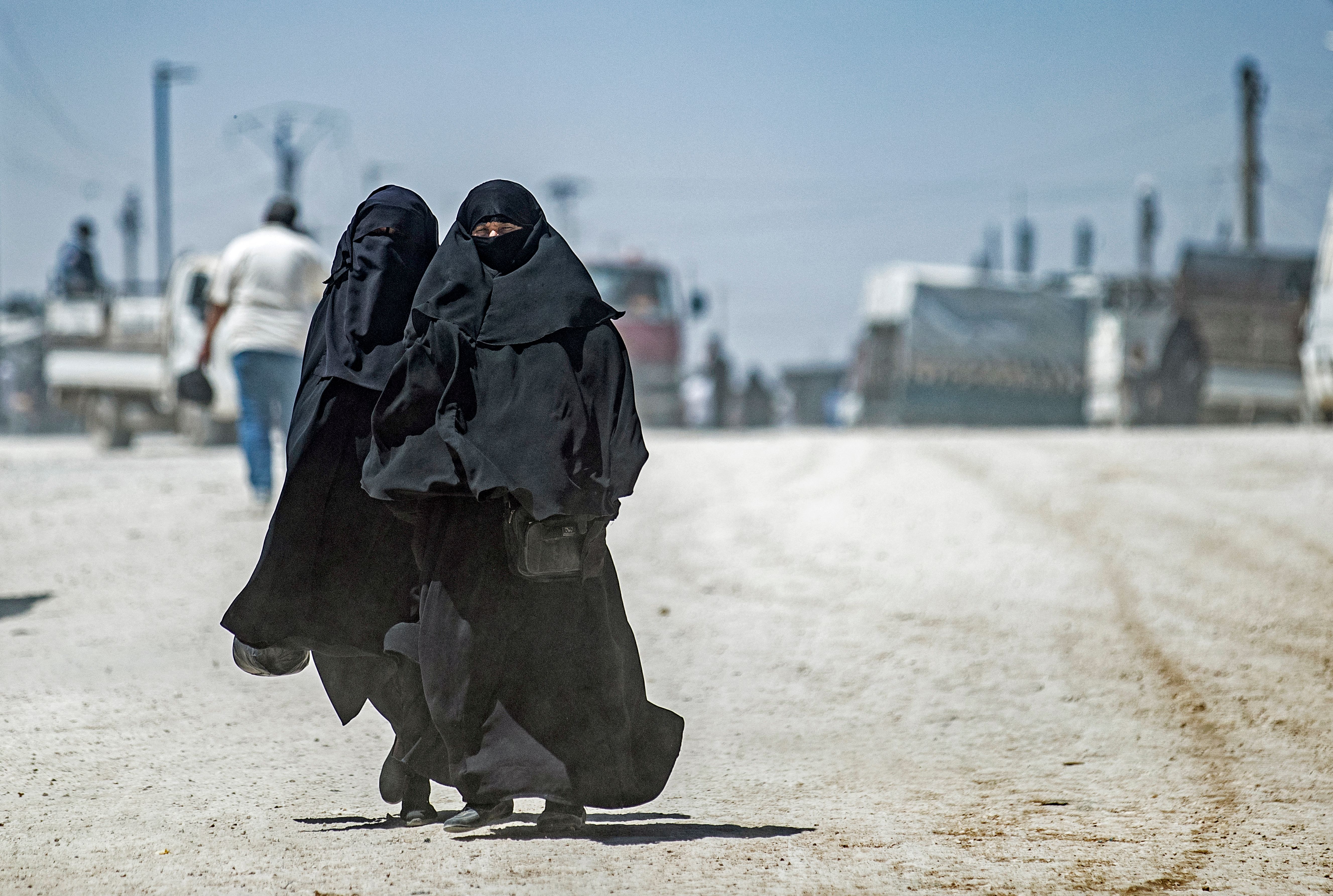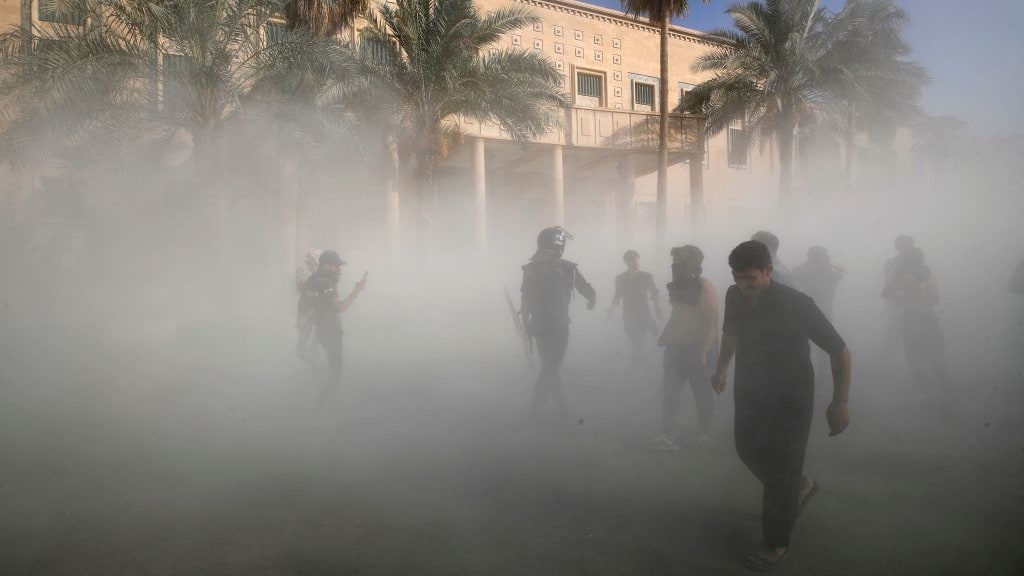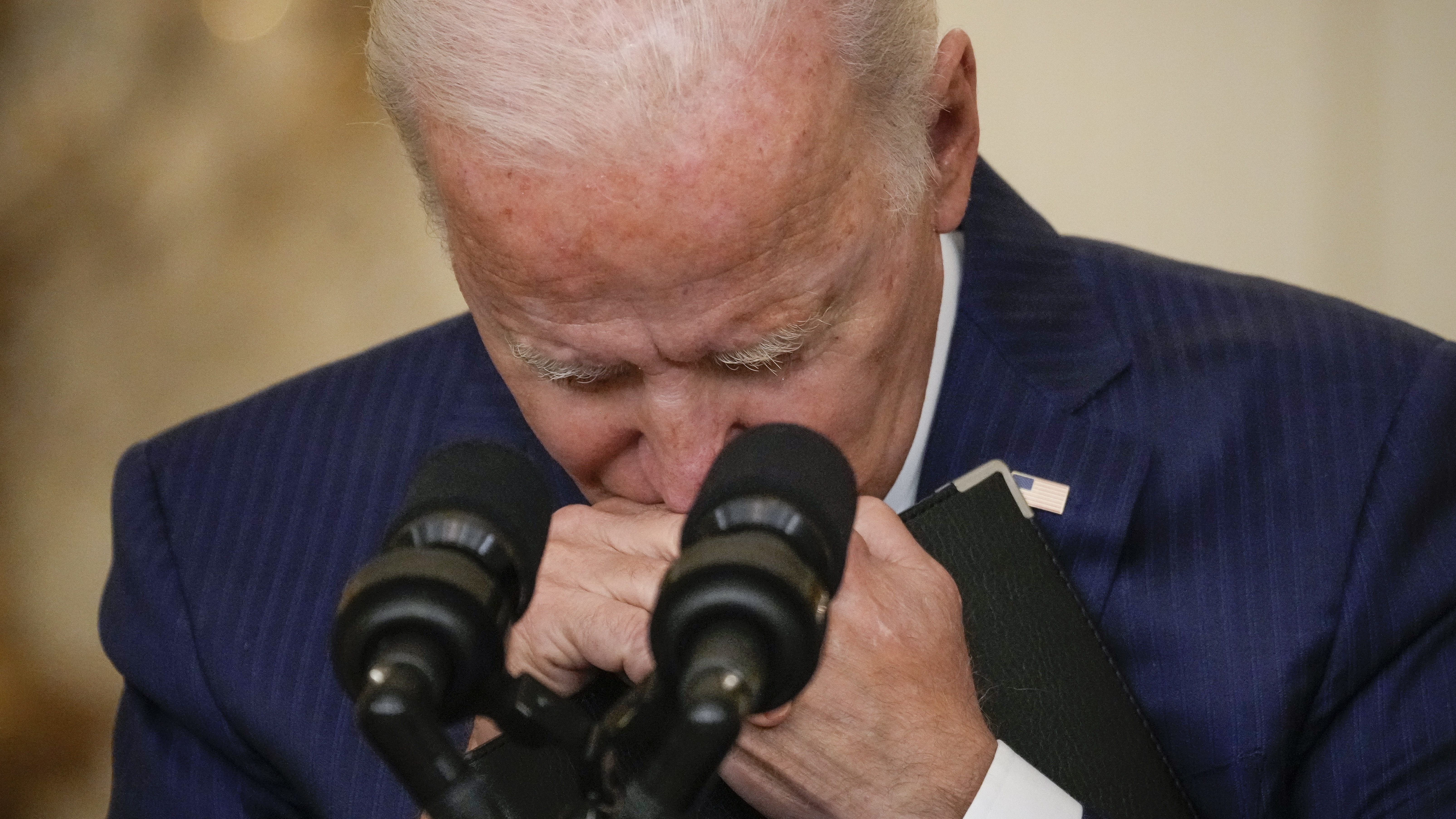British jihadists: how much of a threat do they pose?
As jihadist warns of 'black flag of Islam over Downing St', a Q&A on the risks for the West

A free daily email with the biggest news stories of the day – and the best features from TheWeek.com
You are now subscribed
Your newsletter sign-up was successful
British jihadist Abu Osama has said he will not return to the UK until it is conquered by the Islamic state and he can "raise the black flag of Islam over Downing Street and Buckingham palace", the BBC reports.
Osama says he has been fighting in Syria with the al-Nusra Front, which has links to al-Qaeda and is a banned terrorist group in the UK.His statement comes as over 100 British imams have signed an open letter to the country's Muslim community, urging young men not to "fall prey to any form of sectarian divisions or social discord" by joining the fighting in Syria and Iraq.
We examine how British men are being recruited and radicalised by terror groups and the threat they could pose to UK security.
The Week
Escape your echo chamber. Get the facts behind the news, plus analysis from multiple perspectives.

Sign up for The Week's Free Newsletters
From our morning news briefing to a weekly Good News Newsletter, get the best of The Week delivered directly to your inbox.
From our morning news briefing to a weekly Good News Newsletter, get the best of The Week delivered directly to your inbox.
How many are there? Are they coming back?
Security services estimate that up to 500 young Muslim men have left the UK to fight alongside terrorist organisations in Syria and Iraq, the BBC reports.
Richard Barrett, former head of counter-terrorism at MI6 said he believed up to 300 radicalised British jihadists could have already returned to the UK.
However, some fighters have no intention of returning to the UK. According to social media posts by the groups, many expect to die as martyrs or to live in the Islamic caliphate they are fighting to create.
A free daily email with the biggest news stories of the day – and the best features from TheWeek.com
How have they been radicalised?
Extremist groups such as Isis use various social media sites to share jihadists' experiences, raise money and recruit through violent propaganda.Isis has set up the Al-Hayet Media Centre as "its western-oriented media arm." The media outlet uses social networks such as Twitter, Facebook and Instagram to publish propaganda, but its most powerful recruiting tool has been the videos it posts on YouTube.The videos are often produced in English and German, in order to attract Western Muslims. A young man in one of the videos says: "All my brothers living in the West: come to jihad and feel the honour we are feeling, feel the happiness we are feeling."
The group even has even launched an official Android app, called The Dawn of Glad Tidings.
What is the appeal?
The message appeals to those want to help their fellow Muslims in Syria and Iraq and feel frustrated by the lack of intervention from the West, the New York Times reports.However, the Guardian's Joanna Burke argues that while faith and ideology play an important part in the appeal of groups like Isis, many of these men are driven by more than just religion.
"The glamorising of violence and military culture has effects beyond any particular group. It is not unique to young Muslim men – or, indeed, young men in Cardiff – to be excited by the prospect of combat."
How serious is the threat?
According to the David Cameron, "it is a greater threat to the UK than the return of foreign jihadists or fighters from the Afghanistan-Pakistan region." In a recent report, Barrett describes the conflict in the region as "an incubator for a new generation of terrorists".
One British jihadist tweeted this week that the UK 'should be afraid of what I have learnt' in Syria alongside a picture of apparent homemade bombs.
However, writing in the London Review of Books, Owen Bennett-Jones casts doubt on the threat they pose.
"Many of the young men who have gone to the Middle East have done so precisely because they don’t consider the UK their enemy and don’t think they should attack British targets," he says. "And one of the insights gained by the various deradicalisation programmes that now exist all over the world is that while jihadis appear ferocious, many are fairly weak-willed individuals. It’s easy to persuade them to fight, but it also turns out to be easy to persuade them to stop."
What is the government doing to counter it?
Most of the work being done to combat home-grown extremists is carried out by the intelligence services.Several people have been charged with "involvement in the commission, preparation or instigation of acts of terrorism" and new laws have been pushed through allowing the government confiscate the passports of identified jihadists, the Telegraph reports.The Home Office also has the power to strip extremists of their British passports, but this can only be done if they have dual nationality as they cannot be left stateless.
The government has distributed leaflets in Muslim neighbourhoods encouraging people to come forward if they suspect a friend or family member may be planning to travel to the region to fight and warning people that returning jihadists will face prosecution.
-
 What to know before filing your own taxes for the first time
What to know before filing your own taxes for the first timethe explainer Tackle this financial milestone with confidence
-
 The biggest box office flops of the 21st century
The biggest box office flops of the 21st centuryin depth Unnecessary remakes and turgid, expensive CGI-fests highlight this list of these most notorious box-office losers
-
 What are the best investments for beginners?
What are the best investments for beginners?The Explainer Stocks and ETFs and bonds, oh my
-
 Why is Islamic State targeting Russia?
Why is Islamic State targeting Russia?Today's Big Question Islamist terror group's attack on 'soft target' in Moscow was driven in part by 'opportunity and personnel'
-
 The deadly attacks on Syrian truffle hunters
The deadly attacks on Syrian truffle huntersfeature Islamic State suspected of targeting Syrians risking their lives to secure much-needed income
-
 Kansas woman sentenced to 20 years for leading Islamic State battalion
Kansas woman sentenced to 20 years for leading Islamic State battalionSpeed Read
-
 Does Syria offer warnings for Russia’s Ukraine escalation?
Does Syria offer warnings for Russia’s Ukraine escalation?Today's Big Question Pundits say Putin’s appointment of new commander signals switch back to ‘bloody, destructive playbook’ from Syrian civil war
-
 Turmoil in Iraq
Turmoil in IraqSpeed Read Clashes between rival Shiite groups threaten to 'destabilize a frail state even further'
-
 12 protesters shot and killed during street clashes in Baghdad
12 protesters shot and killed during street clashes in BaghdadSpeed Read
-
 Hellfire ‘Ninja’ missile is part of a scary new generation of unregulated weapons
Hellfire ‘Ninja’ missile is part of a scary new generation of unregulated weaponsfeature Combining new weapon systems with artificial intelligence would be nightmare scenario, warns security expert
-
 Will the Kabul bombing lock Joe Biden into a ‘forever war’ against Isis?
Will the Kabul bombing lock Joe Biden into a ‘forever war’ against Isis?In Depth President vows revenge against extremists following airport suicide attack